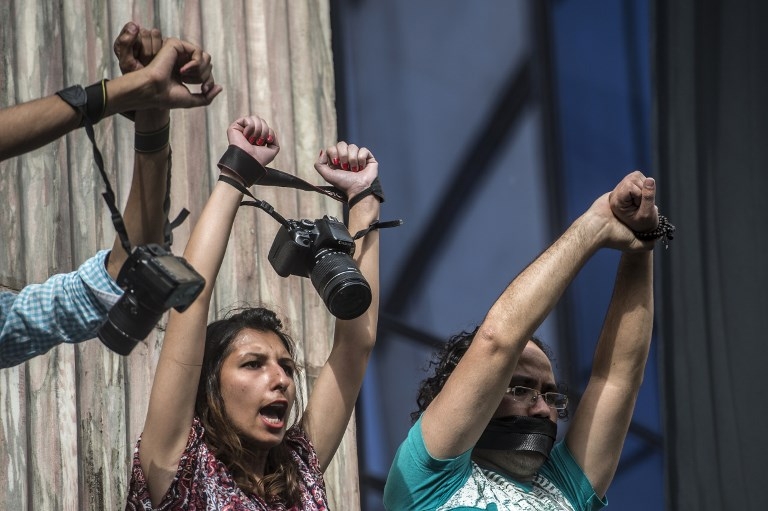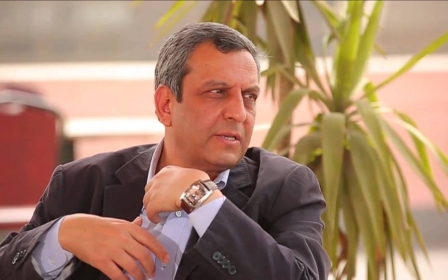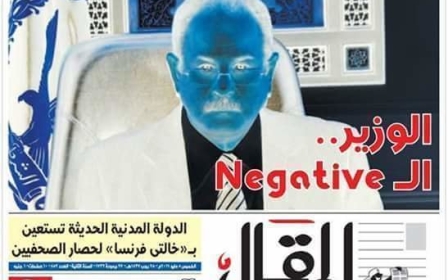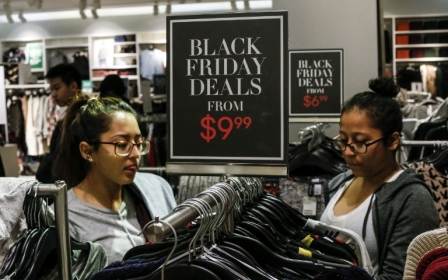Egyptian intelligence services front acquires leading media houses: Reports

Egypt’s intelligence services manoeuvred from behind the scenes to consolidate its hold on several media houses this week, according to a new investigation, as concerns mount over the extent of state interference in Egypt’s media.
On Monday, Eagle Capital, headed by former minister of investment Dalia Korshid, announced it had purchased a large stake in Egyptian Media Group (EMG), owner of 16 media subsidiaries including the Youm7 daily newspaper, Synergy and ONTV, as well as a raft of marketing and advertising agencies.
But in an investigation by Egyptian online newspaper Mada Masr eight people with direct knowledge of the deal claim Eagle Capital is a front that manages Egypt's General Intelligence Service's private sector projects and companies.
The intelligence service is now the sole owner of the media conglomerate after secretly acquiring a governing stake previously, according to the investigation.
A former government official and senior economist, speaking under condition of anonymity, told Mada Masr that there are growing fears over the expanding role of intelligence agencies in non-military areas.
"What is the state logic in participating in these activities? Will this new company [Eagle Capital] be as transparent as a civilian corporation is expected to be?" asks the former government source.
This is "an intentional distortion of the market," the source said.
Reporters Without Borders (RSF) raised the alarm in September over what it described as the "iron hand" of President Abdel Fattah al-Sisi's military-backed government being felt in the acquisition of leading media houses by businessmen close to the government and intelligence services.
It was reported earlier this year that Al Hayat, a TV channel that has been pro-Sisi, was taken over by Falcon, a successful Egyptian security company whose CEO is a former senior military intelligence officer and a former head of the radio and TV regulatory agency.
ONTV, which formed part of the Eagle Capital acquisition, had been taken over in May by Ahmed Abu Hashima, a powerful millionaire steel magnate who said to be close to Sisi.
Abu Hashima is also behind DMC TV network which has been dubbed by some journalists as "the mouthpiece of the intelligence services". According to Reporters Without Borders, the network is known to broadcast interviews that are presented as exclusives but just reiterate pro-regime propaganda, and gets permission to film where other privately owned channels are denied access.
UN human rights experts have raised "grave concern" over a widening "assault on freedom of expression" in Egypt, condemning the blocking of websites such as Aljazeera and the unlawful detention of journalists.
"The situation for journalism and the freedom of expression and access to information in Egypt has been in crisis for several years," the experts noted. "It takes many forms, including the unlawful detention and harassment of journalists and activists," said David Kaye, special rapporteur on the promotion and protection of the right to freedom of opinion and expression and Fionnuala D Ní Aoláin, special rapporteur on the promotion and protection of human rights.
"Denying access to websites of all sorts, but especially news sites, deprives all Egyptians of basic information in the public interest," they said.
According to the Geneva-based Alkarama Foundation, the Egyptian authorities have reportedly blocked access to 400 websites since May 2017, including Mada Masr and and HuffPost Arabi, as well as the websites of human rights organisations such as Reporters Without Borders, the Arabic Network for Human Rights Information, and Alkarama Foundation itself.
Egypt is ranked 161st out of 180 countries in Reporters Without Borders' World Press Freedom Index.
Middle East Eye propose une couverture et une analyse indépendantes et incomparables du Moyen-Orient, de l’Afrique du Nord et d’autres régions du monde. Pour en savoir plus sur la reprise de ce contenu et les frais qui s’appliquent, veuillez remplir ce formulaire [en anglais]. Pour en savoir plus sur MEE, cliquez ici [en anglais].




